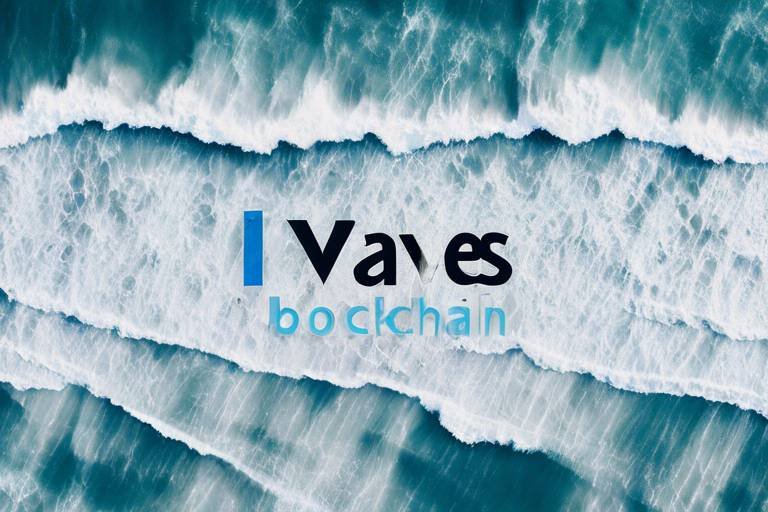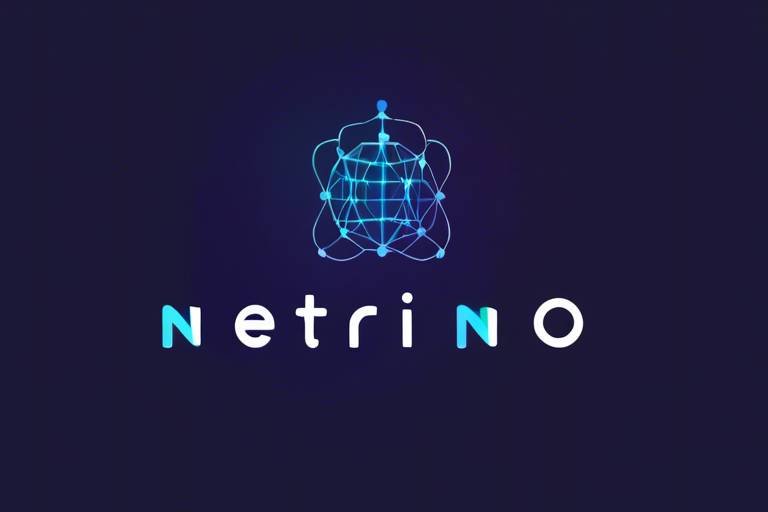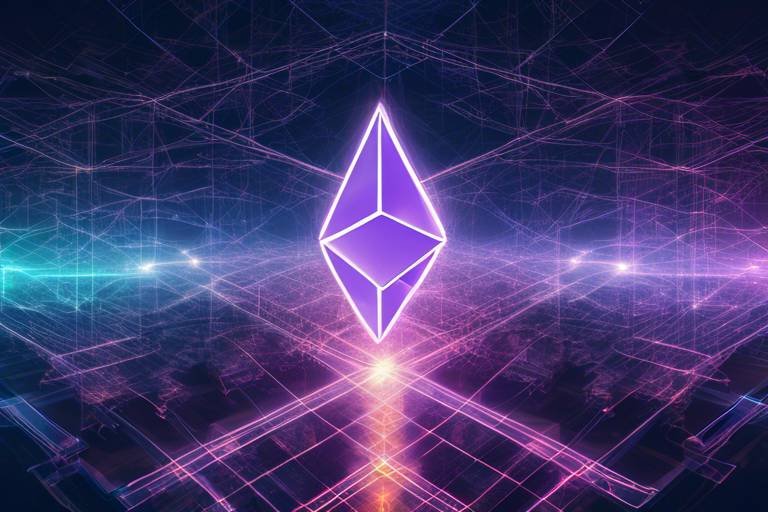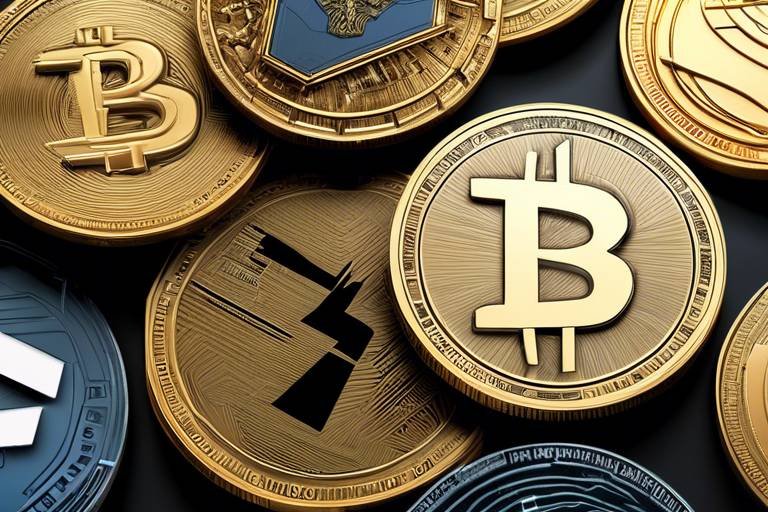BitShares - The First Decentralized Exchange
In the ever-evolving landscape of finance, BitShares stands out as a trailblazer, being recognized as the first decentralized exchange (DEX) that revolutionized how we perceive and engage with trading. Imagine a marketplace where you are not just a mere participant but a vital part of the ecosystem, where you have full control over your assets without the interference of a central authority. This is the essence of BitShares—a platform designed to empower users by offering them the freedom to trade directly with one another, eliminating the need for intermediaries.
The significance of BitShares cannot be overstated. It introduced a new paradigm in the world of decentralized finance (DeFi), allowing for peer-to-peer trading that is secure, transparent, and efficient. Unlike traditional exchanges, which often come with hefty fees and slow transaction times, BitShares operates on a blockchain framework that ensures rapid execution of trades and minimal costs. This innovation not only enhances user experience but also democratizes access to trading opportunities for individuals around the globe.
As we delve deeper into the architecture of BitShares, it becomes evident that its design is not just about trading; it’s about creating a comprehensive ecosystem for asset management. The platform allows users to issue, trade, and manage various digital assets seamlessly. With its unique features, BitShares has paved the way for a new generation of financial applications and services that prioritize user autonomy and security.
What makes BitShares particularly interesting is its decentralized governance model, which empowers users to participate actively in decision-making processes. This model fosters a sense of community and collaboration, setting BitShares apart from conventional financial systems that often prioritize profit over user interests. By engaging users in governance, BitShares not only enhances trust but also encourages a more sustainable and resilient platform.
In the following sections, we will explore the innovative technology that underpins BitShares, including its use of smart contracts and the benefits they bring to the table. We will also discuss the challenges associated with smart contracts, the vibrant community that supports BitShares, and real-world use cases that demonstrate the platform's capabilities. As we navigate through this article, you'll discover how BitShares is more than just a trading platform; it’s a revolutionary movement towards a decentralized financial future.
- What is BitShares? - BitShares is the first decentralized exchange that allows users to trade directly with one another without intermediaries.
- How does BitShares ensure security? - BitShares utilizes blockchain technology and smart contracts to facilitate secure and transparent transactions.
- What are the benefits of using BitShares? - Users enjoy lower fees, faster transaction times, and greater control over their assets.
- Can anyone participate in BitShares? - Yes, BitShares is open to anyone looking to trade or manage digital assets in a decentralized manner.
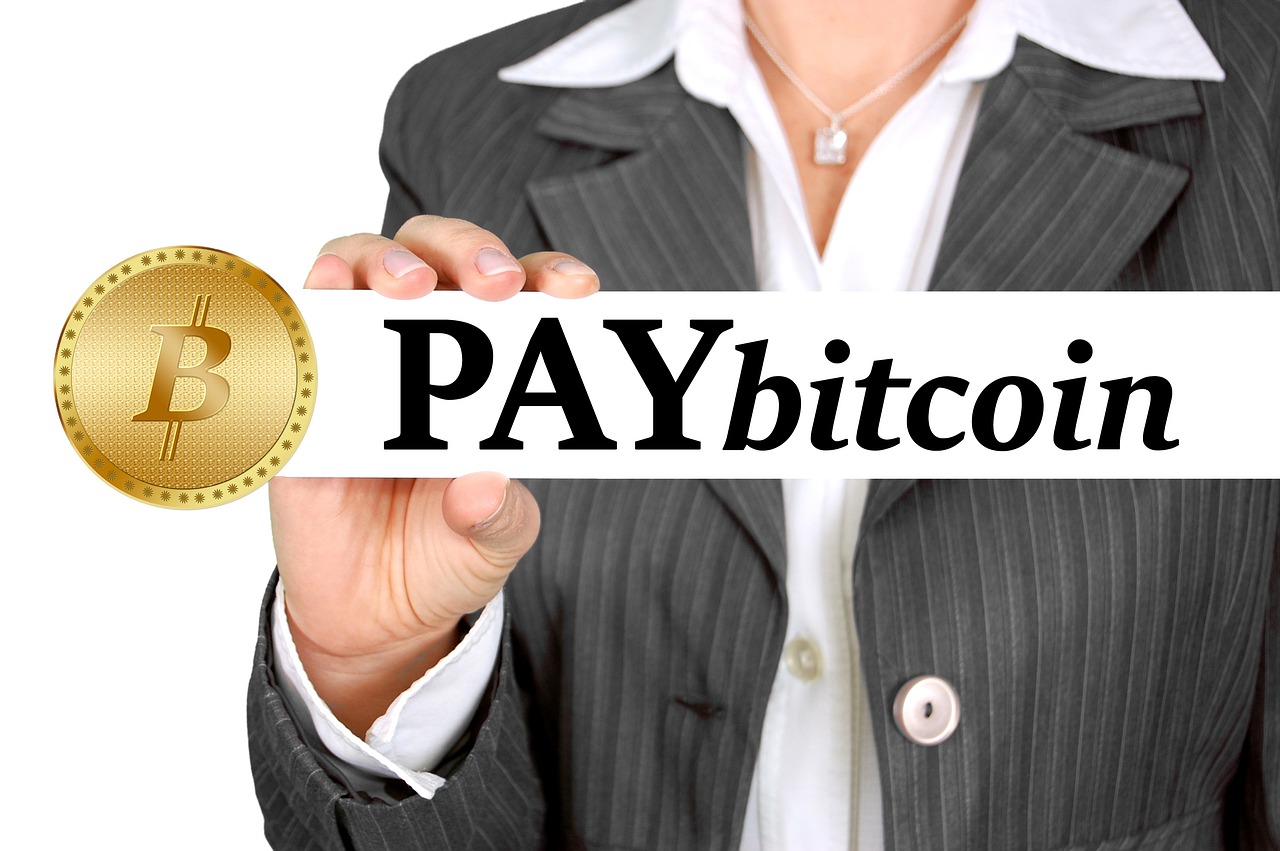
Understanding Decentralized Exchanges
Decentralized exchanges, or DEXs, are revolutionizing the way we think about trading. Imagine a marketplace where you can buy and sell items directly with others, without needing a middleman to facilitate the transaction. This is precisely what DEXs aim to accomplish in the world of cryptocurrency. Unlike traditional exchanges that operate under a central authority, DEXs allow for peer-to-peer trading, meaning users can trade directly with one another. This fundamental shift not only enhances privacy but also empowers users by giving them full control over their assets.
So, what sets DEXs apart from their centralized counterparts? For starters, traditional exchanges, like the ones you might be familiar with, require users to deposit their funds into the exchange's wallet. This centralized model poses risks, such as hacking incidents and fraud. In contrast, DEXs enable users to retain control of their private keys, ensuring that they are the only ones who can access their funds. This is akin to holding cash in your own wallet instead of leaving it in a bank—there's a sense of security that comes with it.
Moreover, DEXs operate on blockchain technology, which provides a transparent and immutable ledger of all transactions. This transparency is crucial in building trust among users, as anyone can verify the integrity of the trades. Additionally, DEXs often utilize smart contracts, which are self-executing contracts with the terms of the agreement directly written into code. This means that once the conditions are met, the contract executes automatically, reducing the need for intermediaries and enhancing the efficiency of the trading process.
However, while DEXs offer numerous advantages, they are not without their challenges. For instance, the user experience on many decentralized platforms can be less intuitive compared to centralized exchanges. Users may face a steeper learning curve, especially those who are new to the cryptocurrency space. Furthermore, liquidity can be an issue; some DEXs may not have enough active traders to facilitate quick transactions, leading to slippage—the difference between the expected price of a trade and the actual price.
In summary, decentralized exchanges represent a significant leap forward in the trading landscape, offering users more control, enhanced security, and greater transparency. As the demand for decentralized finance (DeFi) continues to grow, understanding how DEXs function and their benefits becomes increasingly essential for anyone looking to navigate the world of cryptocurrency.

The Technology Behind BitShares
When we talk about BitShares, we're diving into a world where blockchain technology meets innovation in trading. BitShares is not just another cryptocurrency; it's a revolutionary platform that has redefined how we perceive decentralized exchanges (DEXs). At its core, BitShares operates on a robust blockchain that ensures every transaction is secure, transparent, and immutable. This means that once a transaction is recorded, it cannot be altered or deleted, which is a game changer in the world of finance.
What sets BitShares apart from other DEXs is its unique architecture. The platform employs a delegated proof-of-stake (DPoS) consensus mechanism. Unlike traditional proof-of-work systems that require immense computational power, DPoS allows users to vote for delegates who validate transactions on their behalf. This not only enhances the speed of transactions but also significantly reduces the energy consumption associated with trading. In fact, a transaction on BitShares can be completed in a matter of seconds, compared to the longer wait times often experienced on centralized exchanges.
Moreover, BitShares introduces the concept of smart coins, which are digital assets pegged to various fiat currencies or commodities. This feature allows users to trade in a stable environment, minimizing volatility—a common fear among traders. For instance, if you’re trading a smart coin pegged to the US dollar, you can rest assured that your asset will maintain its value relative to the dollar, regardless of the fluctuations in the cryptocurrency market.
To give you a clearer picture, let’s break down some of the key technological features of BitShares:
| Feature | Description |
|---|---|
| Delegated Proof-of-Stake (DPoS) | Allows users to vote for delegates to validate transactions, enhancing speed and reducing energy consumption. |
| Smart Coins | Digital assets pegged to fiat currencies or commodities, providing stability in trading. |
| Decentralized Governance | Empowers users to participate in decision-making processes regarding the platform’s future. |
In addition to these features, BitShares also leverages smart contracts to automate various processes within its ecosystem. These contracts execute transactions automatically when predefined conditions are met, eliminating the need for intermediaries. Imagine having a vending machine for trading—once you insert the right amount of cryptocurrency, the machine (or smart contract) delivers your asset without any human intervention. This not only speeds up transactions but also builds trust among users, as the process is transparent and verifiable.
However, it’s essential to note that while the technology behind BitShares is groundbreaking, it’s not without its challenges. Issues such as coding errors and security vulnerabilities can arise, which is why continuous development and community engagement are vital. The BitShares community actively participates in identifying and resolving these challenges, ensuring that the platform remains secure and efficient.
In conclusion, the technology behind BitShares is a blend of innovation and practicality, designed to create a seamless trading experience. Its unique architecture, coupled with smart contracts and community-driven governance, positions BitShares as a leader in the decentralized finance space. As we continue to explore the world of decentralized exchanges, BitShares stands out as a beacon of what’s possible when technology meets finance.
- What is BitShares? BitShares is a decentralized exchange platform that utilizes blockchain technology to facilitate secure and transparent trading.
- How does BitShares ensure transaction security? BitShares employs a delegated proof-of-stake (DPoS) consensus mechanism and uses smart contracts to automate and secure transactions.
- What are smart coins? Smart coins are digital assets on the BitShares platform that are pegged to fiat currencies or commodities, providing stability in trading.
- Can I participate in BitShares governance? Yes! BitShares allows users to vote for delegates who help govern the platform and validate transactions.

Smart Contracts in BitShares
Smart contracts are the backbone of the BitShares platform, revolutionizing the way transactions are executed in a decentralized environment. Think of smart contracts as digital vending machines: you put in your money (or cryptocurrency), and if everything is in order, out pops your desired asset. This automation not only enhances efficiency but also significantly reduces the need for intermediaries, which is a game-changer in the world of finance.
In the BitShares ecosystem, smart contracts operate on a set of predefined rules coded directly into the blockchain. This means that once a smart contract is deployed, it cannot be altered, ensuring transparency and trust among users. For instance, if you wanted to trade a digital asset, the smart contract would automatically execute the trade when the conditions are met. This self-executing nature eliminates the risk of human error and fraud, which are common pitfalls in traditional trading systems.
Moreover, smart contracts in BitShares are designed to be highly customizable. Users can create contracts tailored to their specific needs, whether that's for simple asset trades or more complex financial instruments. This flexibility opens up a world of possibilities for developers and traders alike. Imagine being able to create a contract that automatically reinvests your profits or one that adjusts your trading strategy based on market conditions!
However, it's essential to understand that while smart contracts offer numerous benefits, they also come with their own set of challenges. For example, if a smart contract is poorly coded, it can lead to vulnerabilities that malicious actors might exploit. Additionally, once deployed, making changes to a smart contract can be complicated and often impossible without significant overhead. Therefore, it is crucial for developers to thoroughly test and audit their contracts before going live.
In summary, smart contracts are a powerful feature of BitShares that not only streamline trading processes but also empower users to engage in more sophisticated financial activities. As the decentralized finance landscape continues to evolve, the role of smart contracts will likely expand, paving the way for innovations we can only begin to imagine.
- What are smart contracts? Smart contracts are self-executing contracts with the terms of the agreement directly written into code.
- How do smart contracts work in BitShares? They automate transactions based on predefined rules, ensuring security and efficiency.
- What are the risks associated with smart contracts? Risks include coding errors and potential security vulnerabilities that can be exploited.
- Can smart contracts be modified after deployment? Generally, no. Once deployed, changes can be complicated and sometimes impossible.

Benefits of Smart Contracts
Smart contracts are revolutionizing the way transactions are conducted on platforms like BitShares. These self-executing contracts, where the terms of the agreement are directly written into code, offer a plethora of benefits that enhance the overall user experience. First and foremost, they significantly reduce transaction costs. Traditional methods often involve intermediaries, each taking a cut, which can add up to substantial fees. In contrast, smart contracts eliminate the need for such middlemen, allowing users to keep more of their hard-earned money.
Moreover, smart contracts enhance security by leveraging blockchain technology. Once a smart contract is deployed, it cannot be altered, which means that the risk of fraud and manipulation is drastically minimized. This is particularly crucial in the realm of finance, where trust is paramount. Users can engage in transactions with confidence, knowing that their agreements are secure and immutable.
Another noteworthy advantage is the speed of transactions. Unlike traditional systems that may take days to process, smart contracts operate in real-time. This immediacy is invaluable for traders and businesses that thrive on quick decision-making. Imagine needing to act fast in a volatile market; with smart contracts, you can execute trades almost instantaneously, capitalizing on opportunities without the frustrating delays of conventional methods.
Furthermore, smart contracts provide a level of transparency that is hard to achieve in traditional finance. Every transaction is recorded on the blockchain, creating a public ledger that anyone can audit. This transparency fosters trust among users and encourages responsible behavior, as all parties are held accountable for their actions. No more hidden fees or shady practices – everything is laid out in the open.
Lastly, the automation of processes through smart contracts leads to increased efficiency. By automating repetitive tasks, businesses can focus their resources on more critical areas, such as innovation and customer service. For example, a company can automate payment processes, ensuring that employees are paid on time without manual intervention. This not only saves time but also reduces the likelihood of human error.
In summary, the benefits of smart contracts on the BitShares platform are numerous and impactful. From reduced costs and enhanced security to improved speed, transparency, and efficiency, these digital agreements are setting a new standard in the world of decentralized finance. As more users recognize these advantages, the adoption of smart contracts is likely to grow, further solidifying BitShares' position as a leader in decentralized trading.
- What are smart contracts? Smart contracts are self-executing contracts with the terms of the agreement directly written into code, operating on blockchain technology.
- How do smart contracts enhance security? They are immutable once deployed, significantly reducing the risk of fraud and manipulation.
- Can smart contracts speed up transactions? Yes, they allow for real-time execution of agreements, eliminating delays associated with traditional methods.
- Are smart contracts transparent? Absolutely! Every transaction is recorded on the blockchain, providing a public ledger that enhances accountability.
- What efficiency gains do smart contracts offer? They automate repetitive tasks, allowing businesses to concentrate on innovation and customer service.
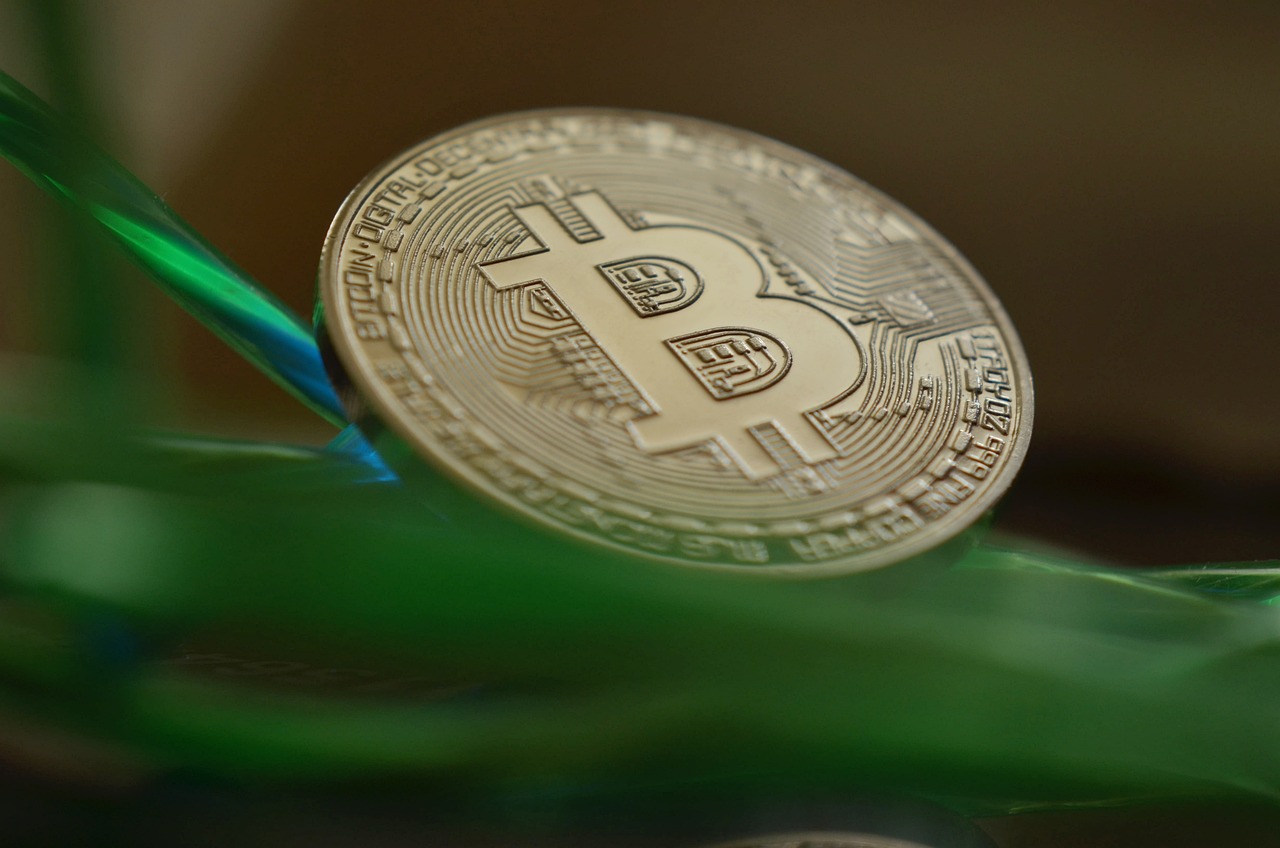
Challenges of Smart Contracts
While smart contracts are often hailed as revolutionary, they come with their own set of challenges that can complicate their implementation and use within the BitShares ecosystem. One of the primary concerns is the potential for coding errors. Just like a typo in a recipe can ruin a dish, a small mistake in the code of a smart contract can lead to significant issues, such as unintended transactions or vulnerabilities that can be exploited by malicious actors.
Moreover, the security vulnerabilities inherent in smart contracts are a major point of concern. These contracts are executed on the blockchain, which is generally secure, but if the code itself is flawed, it can create loopholes that hackers might exploit. For instance, the infamous DAO hack in 2016, which resulted in a loss of millions of dollars, serves as a stark reminder of what can go wrong when smart contracts are not properly audited.
Another challenge is the irreversibility of transactions once they are executed. In the traditional financial world, if you make a mistake in a transaction, you often have the option to reverse it. However, in the realm of smart contracts, once a contract is executed, it cannot be undone. This means that users must exercise extreme caution and ensure that all conditions are met before executing a transaction.
Additionally, the complexity of smart contracts can pose a barrier to entry for average users. Many people are not familiar with programming or the technicalities of blockchain technology, which can lead to confusion and mistrust. As a result, a significant portion of potential users may shy away from utilizing platforms like BitShares, fearing the risks associated with smart contracts.
Lastly, regulatory challenges cannot be overlooked. As governments and regulatory bodies around the world scramble to catch up with the rapid development of blockchain technology, smart contracts often find themselves in a gray area. This uncertainty can discourage businesses from fully embracing smart contracts, as they may fear future regulatory changes that could impact their operations.
In summary, while smart contracts offer numerous benefits, they are not without their challenges. From coding errors and security vulnerabilities to the irreversibility of transactions and regulatory uncertainties, these factors must be carefully considered by users and developers alike. Addressing these challenges is crucial for the continued growth and adoption of smart contracts within the BitShares platform and the broader decentralized finance landscape.
- What are smart contracts? Smart contracts are self-executing contracts with the terms of the agreement directly written into code, enabling automatic execution without intermediaries.
- Are smart contracts secure? While they can enhance security through automation and transparency, they are vulnerable to coding errors and exploits if not properly audited.
- Can transactions in smart contracts be reversed? No, once a smart contract is executed, the transaction is irreversible, which requires users to be certain before proceeding.
- What are the benefits of using smart contracts? They offer increased efficiency, reduced costs, and enhanced trust due to their transparent and automated nature.

BitShares Governance Model
The governance model of BitShares is a fascinating aspect that sets it apart from many other decentralized platforms. Unlike traditional financial systems where a handful of individuals or organizations hold the power to make crucial decisions, BitShares embraces a more democratic approach. In this model, stakeholders have the ability to influence the direction of the platform through their voting power, creating a truly decentralized ecosystem. This means that every user who holds BitShares (BTS) tokens can participate in governance decisions, allowing for a collaborative and community-driven environment.
At the core of this governance structure is the concept of delegated proof of stake (DPoS). This innovative mechanism allows users to elect delegates who are responsible for validating transactions and maintaining the network. The delegates are chosen based on the number of votes they receive, which means that those who contribute more to the ecosystem have a greater say in its future. This system not only empowers users but also fosters a sense of responsibility among delegates, as they are accountable to the community that elected them.
To better understand how this governance model operates, let's break it down into key components:
- Voting Rights: Every BTS holder has the right to vote for delegates. The more tokens you hold, the more influence you have in the voting process.
- Delegate Responsibilities: Elected delegates are tasked with producing blocks, maintaining network security, and implementing changes based on community feedback.
- Transparency and Accountability: The actions of delegates are transparent, and they can be removed from their position if they fail to perform their duties adequately.
This structure not only enhances community engagement but also ensures that the platform evolves based on the needs and desires of its users. By allowing stakeholders to have a say in governance, BitShares creates a dynamic environment where feedback is valued and acted upon. This is crucial in the fast-paced world of blockchain technology, where adaptability can make or break a platform.
However, it's essential to recognize that with great power comes great responsibility. The BitShares community must remain vigilant in their voting practices to ensure that only capable and trustworthy delegates are elected. This vigilance helps maintain the integrity of the platform and fosters a culture of accountability.
In conclusion, the governance model of BitShares is a shining example of how decentralized systems can operate effectively while empowering their users. By leveraging the principles of DPoS, BitShares not only democratizes decision-making but also creates a robust framework for future growth and innovation. As the landscape of decentralized finance continues to evolve, the BitShares governance model serves as a blueprint for other platforms aiming to achieve similar levels of community involvement and transparency.
What is the role of delegates in BitShares?
Delegates in BitShares are elected representatives responsible for validating transactions and maintaining the network. They play a crucial role in governance and are accountable to the community.
How can I participate in BitShares governance?
You can participate by holding BTS tokens and voting for delegates. The more tokens you hold, the more voting power you have.
What happens if a delegate fails to perform their duties?
If a delegate fails to perform adequately, the community can vote to remove them from their position, ensuring accountability within the governance model.
Is BitShares governance truly decentralized?
Yes, BitShares governance is decentralized as it allows every BTS holder to participate in decision-making, creating a collaborative environment for all users.

Advantages of Using BitShares
When it comes to decentralized finance, BitShares stands out as a revolutionary platform that has changed the way we think about trading and asset management. One of the most significant advantages of using BitShares is its ability to offer lower transaction fees compared to traditional exchanges. Imagine being able to trade assets without the hefty fees that often accompany centralized platforms. This cost-effectiveness not only benefits individual traders but also opens the door for smaller investors to participate in the market without the fear of losing a large chunk of their profits to fees.
Another compelling advantage is the speed of transactions. BitShares leverages its unique blockchain technology to enable near-instantaneous trading. While traditional exchanges can take minutes or even hours to process transactions, BitShares allows users to execute trades in a matter of seconds. This speed is crucial for traders who need to act quickly to capitalize on market fluctuations. In the fast-paced world of cryptocurrency, every second counts, and BitShares ensures that users are always ahead of the game.
Moreover, the security offered by BitShares is unparalleled. By operating on a decentralized network, the platform minimizes the risks associated with hacking and fraud. Unlike centralized exchanges that hold users' funds in a single location, BitShares distributes assets across the network, making it significantly harder for malicious actors to compromise the system. Users can trade with peace of mind, knowing their investments are protected by robust security measures.
Additionally, the transparency of BitShares is a game-changer. Every transaction is recorded on the blockchain, providing an immutable and publicly accessible ledger. This level of transparency not only builds trust among users but also ensures that all trading activities are verifiable. For those who value accountability in financial transactions, BitShares offers a level of assurance that traditional exchanges often lack.
Furthermore, BitShares supports a wide variety of assets, allowing users to trade not just cryptocurrencies but also tokenized versions of real-world assets. This versatility opens up a world of opportunities for traders and investors alike. Whether you're looking to invest in digital currencies, stocks, or commodities, BitShares has you covered. The platform's ability to accommodate diverse asset classes makes it a one-stop-shop for all your trading needs.
Lastly, the community-driven nature of BitShares cannot be overlooked. The platform thrives on the contributions of its users, who actively participate in governance and development. This democratic approach ensures that the platform evolves in a way that meets the needs of its community. Users have a say in how the platform operates, which fosters a sense of ownership and loyalty among traders.
In summary, the advantages of using BitShares are numerous and compelling. From lower fees and faster transactions to enhanced security and transparency, BitShares is paving the way for a new era of decentralized trading. With a supportive community and a diverse range of assets, it’s no wonder that more and more users are flocking to this innovative platform.
- What makes BitShares different from traditional exchanges?
BitShares operates without a central authority, allowing for peer-to-peer trading and lower fees. - How secure is BitShares?
BitShares utilizes blockchain technology to distribute assets across the network, significantly reducing the risk of hacking. - Can I trade real-world assets on BitShares?
Yes, BitShares allows users to trade tokenized versions of various real-world assets. - How does the governance model work?
BitShares is community-driven, meaning users can participate in decision-making processes that affect the platform.
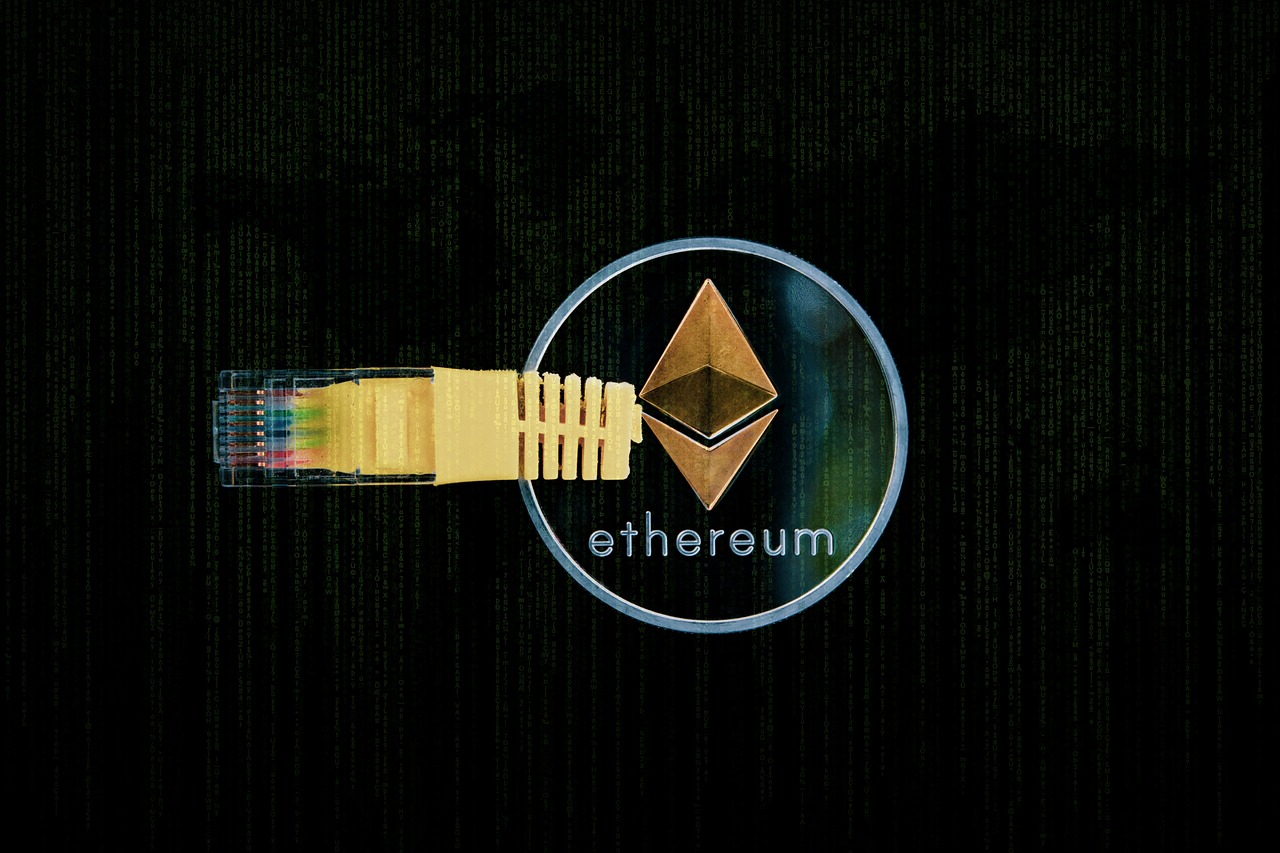
Community and Support
The BitShares community is not just a group of users; it's a vibrant ecosystem that plays a pivotal role in the platform's development and success. Think of it as a bustling marketplace where ideas are exchanged, innovations are born, and support is readily available. This community is comprised of developers, traders, and enthusiasts who share a common goal: to enhance the BitShares platform and promote its adoption across the globe.
One of the standout features of the BitShares community is its commitment to open-source development. This means that anyone can contribute to the code, suggest improvements, or even create new applications that run on the BitShares blockchain. It’s like having an ever-growing toolbox where everyone can pitch in to build something greater. The collaborative nature of this community fosters a sense of belonging and encourages creativity, making it an exciting space for anyone interested in decentralized finance.
Moreover, the community offers various channels for support and engagement. Users can connect through forums, social media platforms, and chat groups, where they can ask questions, share experiences, and learn from one another. This accessibility is crucial, especially for newcomers who may feel overwhelmed by the complexities of decentralized trading. The willingness of seasoned members to assist others creates a welcoming atmosphere that encourages participation and learning.
In addition to informal support, the BitShares community organizes regular events, such as meetups and webinars, where members can discuss developments, share insights, and network with one another. These events not only strengthen community bonds but also keep everyone updated on the latest advancements and challenges facing the platform. It's a fantastic way to stay informed and engaged in the rapidly evolving world of decentralized finance.
Furthermore, the community actively participates in governance, allowing users to vote on proposals that affect the platform. This democratic approach ensures that every voice is heard, and decisions reflect the collective interests of the community. It's like a town hall meeting, but on a global scale, where each participant has a say in shaping the future of BitShares.
To summarize, the community and support surrounding BitShares are integral to its success. The collaboration, knowledge-sharing, and collective decision-making create a robust environment that not only enhances the platform but also empowers users. Whether you're a developer looking to contribute or a trader seeking guidance, the BitShares community stands ready to support you on your journey.
- What is BitShares?
BitShares is a decentralized exchange platform that allows users to trade cryptocurrencies without the need for a central authority.
- How does BitShares ensure security?
BitShares utilizes blockchain technology and smart contracts to secure transactions and automate processes, enhancing trust and integrity.
- Can anyone participate in the BitShares community?
Absolutely! The BitShares community is open to everyone, from experienced developers to newcomers eager to learn.
- What are the benefits of using BitShares?
Users benefit from lower fees, faster transactions, and a decentralized governance model that encourages community involvement.

Real-World Use Cases
BitShares isn’t just a theoretical concept; it has practical applications that showcase its power and utility in the real world. Imagine a bustling marketplace where buyers and sellers interact directly, without any middlemen. That’s the essence of what BitShares offers to its users. From trading digital assets to managing complex financial instruments, BitShares is paving the way for innovative solutions in decentralized finance.
One of the standout use cases for BitShares is in the realm of peer-to-peer trading. Users can trade a variety of assets, including cryptocurrencies and tokenized versions of real-world assets, all without the need for a centralized authority. This not only enhances security but also fosters a sense of community among traders. For instance, a user in Europe can seamlessly trade digital assets with another user in Asia without worrying about hefty fees or long transaction times. The ability to trade directly is a game-changer, and it’s all thanks to the underlying blockchain technology that powers BitShares.
Another exciting application is in decentralized asset management. Businesses looking to tokenize their assets can use BitShares to issue digital tokens representing shares of their company. This allows for fractional ownership, meaning that even small investors can participate in opportunities that were once reserved for the wealthy. For example, a real estate company could tokenize a property, allowing multiple investors to buy shares and benefit from rental income. This democratization of asset ownership is not only revolutionary but also aligns with the principles of decentralization and accessibility.
Additionally, BitShares has been utilized in crowdfunding initiatives. Startups can launch their projects and raise funds through the issuance of tokens on the BitShares platform. This method of fundraising is not only faster but also offers transparency, as all transactions are recorded on the blockchain. Imagine a tech startup seeking to develop a groundbreaking app; instead of going through traditional venture capitalists, they can reach out directly to potential investors through BitShares, making the process more inclusive and efficient.
Moreover, the platform is gaining traction in the gaming industry. Developers are beginning to integrate BitShares into their games, allowing players to trade in-game assets securely and transparently. This is a win-win situation: gamers can truly own their assets, and developers can create new revenue streams without the need for traditional payment systems. Picture a player who has spent countless hours leveling up their character; with BitShares, they can sell their character or in-game items for real value, transforming the gaming experience.
In conclusion, BitShares is not just a theoretical construct; it’s a vibrant ecosystem with real-world applications that enhance trading, asset management, and investment opportunities. Its innovative approach to decentralization is reshaping how we think about finance and ownership in the digital age.
- What is BitShares? BitShares is a decentralized exchange that allows users to trade digital assets directly without a central authority.
- How does BitShares ensure security? BitShares utilizes blockchain technology to secure transactions and protect user assets through cryptographic methods.
- Can I trade real-world assets on BitShares? Yes, BitShares allows the tokenization of real-world assets, enabling users to trade them on the platform.
- What are the benefits of using BitShares? Benefits include lower transaction fees, faster trading times, and increased security compared to traditional exchanges.
- How does the governance model work? BitShares employs a unique governance structure that empowers users to have a say in the platform’s development and direction.
Frequently Asked Questions
- What is BitShares?
BitShares is a pioneering decentralized exchange (DEX) that enables peer-to-peer trading without the need for a central authority. It operates on blockchain technology, ensuring secure and transparent transactions, and allows users to trade various digital assets.
- How does BitShares differ from traditional exchanges?
Unlike traditional exchanges, which are centralized and often subject to regulatory oversight, BitShares operates on a decentralized model. This means that users maintain control over their funds and trades, reducing the risk of hacks and fraud associated with centralized platforms.
- What are smart contracts, and how do they work in BitShares?
Smart contracts are self-executing contracts with the terms of the agreement directly written into code. In BitShares, they automate various processes, such as trade execution and asset transfers, enhancing efficiency and trust within the platform.
- What are the benefits of using smart contracts on BitShares?
Smart contracts on BitShares offer numerous advantages, including lower transaction costs, increased security, and faster processing times. By eliminating intermediaries, they streamline operations and reduce the chances of human error.
- Are there any challenges associated with smart contracts?
Yes, while smart contracts provide many benefits, they also come with challenges. Issues such as coding errors and potential security vulnerabilities can pose risks. It's crucial for developers to ensure thorough testing and audits to mitigate these concerns.
- How does the governance model work in BitShares?
BitShares employs a unique governance model that allows users to participate in decision-making processes. This decentralized approach empowers stakeholders to influence the platform's development and policies, fostering a sense of community and ownership.
- What are the key advantages of using BitShares?
Some of the main advantages of using BitShares include lower trading fees, faster transaction speeds, and the ability to trade a wide range of digital assets. These benefits make it an attractive option for both individual traders and businesses.
- How does the BitShares community contribute to the platform?
The BitShares community plays a vital role in its ongoing development and support. Community members contribute by providing feedback, developing new features, and helping to educate others about the platform, which enhances its functionality and user experience.
- What are some real-world use cases for BitShares?
BitShares has been utilized in various real-world applications, such as facilitating cross-border payments, enabling tokenized assets, and providing a platform for decentralized finance (DeFi) solutions. Businesses and individuals leverage BitShares for trading and asset management, showcasing its versatility.







